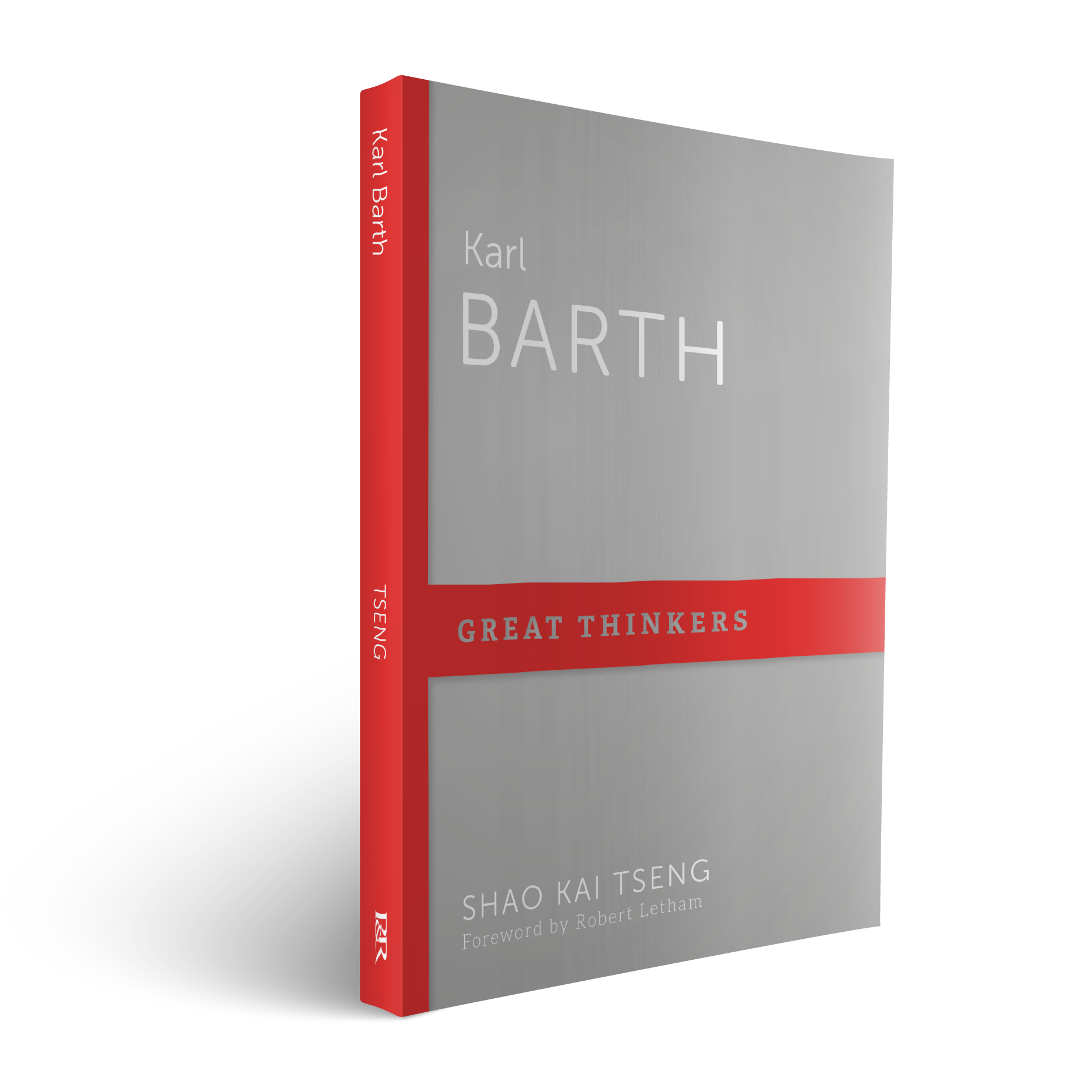Today is the release of Karl Barth (Great Thinkers series) by Shao Kai Tseng.
Karl Barth by Shao Kai Tseng
256 pages | $15.99 $8.00 | SAMPLE CHAPTER | Kindle: $8.99
Swiss theologian Karl Barth (1886–1968) has made a monumental impact all along the spectrum of theology and ethics. Among evangelicals, however, myths and caricatures have arisen that must be dismantled to achieve a critically and selectively fruitful engagement with his work.
A fresh look at Barth is necessary. Inviting readers to suspend their assumptions and calling evangelicals and Barthians to mutually edifying dialogue, Professor Shao Kai Tseng, a notable Barth scholar, seeks to establish a fair interpretation of Barth’s writings that honors his texts and heeds his intellectual-biographical and intellectual-historical context. He also provides a valuable overview of Barth’s theological impact in both the East and the West to the present day. In the words of Professor George Hunsinger, “This welcome volume takes ecumenical dialogue [on Barth] to a whole new level,” and Professor Michael Horton writes, “I know of no other work that . . . explains Barth’s theology with such skill.”
Endorsements
“Believing that Karl Barth has often been misunderstood by evangelicals, Shao Kai Tseng makes a solid case for taking another look at the Swiss theologian and shows us a way to read him charitably and profitably. If Herman Bavinck engaged and even learned from Kant, Schleiermacher, Hegel, and Feuerbach, the author argues, we can and need to learn from Barth. He’s right about that, and one need not agree with every detail of Tseng’s revisionary reading of Barth to profit a great deal from it. This is a model of how to read theologians with whom one disagrees.”
—John Bolt, Jean and Kenneth Baker Professor of Systematic Theology, Emeritus, Calvin Theological Seminary
“Evangelical and Reformed engagement with the theology of Karl Barth continues to develop and mature, and may enter a new era with Shao Kai Tseng’s work. He advances the conversation by bringing Barth into dialogue with the voices of Herman Bavinck and Geerhardus Vos and also by probing more deeply than either knee-jerk rejection or slavish acceptance of what Barth offers. This study will prove invaluable not just to those who teach on Barth but to all interested in some of the most pressing concerns of the Christian worldview in the twenty-first century.”
—David Gibson, Minister, Trinity Church, Aberdeen; author, Reading the Decree: Exegesis, Election and Christology in Calvin and Barth
“Karl Barth died more than fifty years ago, but he keeps on being a provocative theologian to new generations. In this book, a fine summary of Barth’s Reformed theology, neo-Calvinist theologian Shao Kai Tseng enthusiastically proposes and participates in a conversation with evangelicals about the core value of Barth’s theology and theirs, to the benefit of both.”
—George Harinck, Professor of the History of Neo-Calvinism, Kampen Theological University
“On many points, as Professor Tseng shows, Barth has been misunderstood by friend and foe alike. I know of no other work that, in brief compass, explains Barth’s theology with such skill and engages it from a confessional Reformed perspective. Tethered to the primary sources, this work also displays the continuities and discontinuities with post-Barthian scholars—in Asia as well as the West. This is a gem.”
—Michael Horton, J. Gresham Machen Professor of Theology, Westminster Seminary California
About the Author
Shao Kai (“Alex”) Tseng (MDiv, Regent College; ThM, Princeton Theological Seminary; MSt, DPhil, University of Oxford) is research professor in the philosophy department of Zhejiang University in Hangzhou, China. He is the author of Karl Barth’s Infralapsarian Theology and Barth’s Ontology of Sin and Grace, as well as books on Hegel, Kant, and Barth in the Great Thinkers series, and a contributor to the Oxford Handbook of Nineteenth-Century Christian Thought.
All books in the Great Thinkers series are currently 50% off. Click HERE to view all books in the series.


Comments